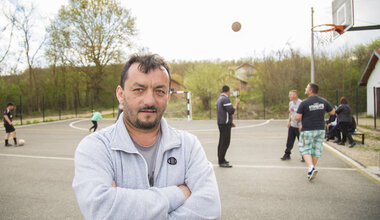23 Apr
2015
The Secretary-General
--
Remarks at Panel Discussion: Highlighting a Counter-narrative: Promoting Tolerance for Diversity,
Freedom of Speech and Human Rights
New York, 22 April 2015
Thank you, Ms. Laura Trevelyan [BBC Anchor and Moderator], it is a great pleasure to welcome you back to the United Nations. Thank you for moderating this very important panel discussion.
And I would like to thank the High Representative [of the Alliance of Civilizations], H.E. Nassir [Abdulaziz] Al-Nasser, for your commitment and leadership.
Your Eminences, Your Holinesses, eminent religious leaders, Excellencies, Ladies and Gentlemen,
As we near the end of two days of discussions on how to promote tolerance and reconciliation, I would like to thank the many participants who have made these gatherings very rich and productive.
I hope our message of solidarity and resolve will be heard far and wide.
The commitment to mutual understanding is part of the DNA of the United Nations and is at the very heart of the Charter and the Universal Declaration of Human Rights.
In all our work, the United Nations strives to pave a path towards peace and greater cross-cultural understanding.
We are living through a period of global transition. Technology is connecting us ever more closely, and cross-cultural exchanges are deepening every day.
But this does not mean there is more understanding.
Societies are more diverse but [intolerance] is on the rise in too many places.
We see rising and violent extremism, radicalism, and widening conflicts that are characterized by a fundamental disregard for human rights.
We see growing hostility and discrimination towards people crossing borders in search of asylum or opportunities denied to them at home.
Hate crimes and other forms of intolerance mar too many communities, often stoked by irresponsible leaders seeking political gain.
I have strongly urged world leaders to protect people from persecution and to encourage tolerance for all, regardless of nationality, religion, language, race, sexual orientation or any other distinction that obscures our common humanity.
There are no individual solutions to these multifaceted and inter-related challenges.
We can only advance as a community of nations and cultures, drawing on human solidarity and recognizing that we share a common destiny.
This is why tolerance is so important.
Tolerance is not passive. It demands an active choice to reach out on the basis of mutual understanding and respect, especially where disagreement exists.
Tolerance can, and must, be learned.
During our morning session, some esteemed religious leaders have pointed out certain issues which I think are very important. I think we should go beyond tolerance, and we should accept more than tolerate. But, tolerance itself is not passive. Tolerance can and must be learned. But I am open, even though we have used the word tolerance in our topic, we will always be guided by your good ideas.
We need to promote freedom of expression.
We need to educate people about their rights.
And we need to teach girls and boys not just how to live together but how to act together as global citizens.
We need to nurture tolerance from playgrounds to parliaments.
We need to tackle growing inequality and reject social exclusion.
At this time of tension and trial, tolerance and respect for fundamental freedoms and human rights have never been so important.
Today’s panellists are themselves a wonderfully diverse group, and I very much look forward to their thoughts.
Thank you.
 UN
UN United Nations Peacekeeping
United Nations Peacekeeping




